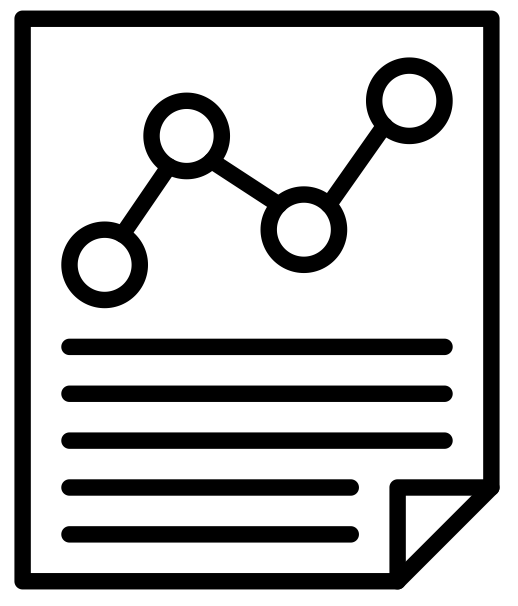Find or collect data
Find data
Third-party data sources
Depending on your project, your research might entail collecting the data yourself or finding third party data for reuse. Here are a few starting places to search for data:
| Concordia resources | |
|---|---|
| Disciplinary data repositories |
|
| Other data sources |
|
Acquiring data for reuse
NOTE: Some data can only be used under certain licenses or terms of use. Make sure you understand what the terms are before using the data. More information on data user's rights.
Licenses or terms of use may be attached to publically available data. Look for this information in the repository where the data was found or in a codebook.
Furthermore, the use of certain data may require you to enter into an agreement, such as a Data Use Agreement, Non-Disclosure Agreement, Confidentiality Agreement, Licensing Agreement, etc.
For more information on these types of agreements, please contact Concordia's Partnership and Innovation Team.
Understanding social science research data

Collect data ethically
Confidentiality of human subjects
If your research involves human subjects, you need to comply to the Concordia Policy for the Ethical Review of Research Involving Humans (VPRGS-3). To learn more, please consult Concordia's research ethics policies and procedures.
When managing research data dealing with human subjects, the confidentiality of your respondents is paramount. Start thinking about preserving confidentiality at the outset of your research project as well how best to share your data at its conclusion.
Things to consider:
- Consent forms: Devise your consent form with data confidentiality and data sharing in mind. These need not be contradictory.
- De-identification or anonymization: Determine if you will need to de-identify or anonymize your dataset before sharing it. These procedures can be time-consuming and may necessitate an appropriate budget.
- Sharing data: Consider where (in what data repository) you will store your data at the end of your research project; this choice should be informed by the type of confidentiality review and access control options offered by that repository. For help, see the Tri-Council's Guidance on Depositing Existing Data in Public Repositories
Resources
- Human Participant Research Data Risk Matrix: helps researchers determine risk level for human participant research data, and make decisions with respect to its management, deposit, and appropriate access/future use.
Consent forms
Sensitive data can be ethically shared within the research community provided that adequate measures are taken. Make sure not to write your consent form in a way that would impose unnecessary limitations on how your data can be reused. It is usually very difficult or even impossible to retroactively obtain consent to share data.
Things to consider:
- Confidentiality: The consent form should explain to the participants how you will maintain the confidentiality of their records.
- Data collection: Participants should be informed of the exact type of data that will be collected and the purpose of the data collection.
- Data sharing: If you plan to share your data this should be made explicit; you should specify who will have access to the dataset and for what purpose.
- Data destruction: Do not commit to destroying your dataset unless this is deemed necessary.
Resources
- Example language for informed consent: for research involving sensitive data (Portage)
- Sample consent forms for sensitive data (Concordia's Centre for Oral History and Digital Storytelling)
- Consent for data sharing (UK Data Service)
Collecting sensitive data
Consider using tools that are designed for securely collecting sensitive data. Contact Concordia's IT Research Support Team to identify the secure data collection options available via Concordia or other affiliated computing networks. If you are working with researchers at other institutions, they may have access to REDCap, a secure web application for building and managing online surveys and databases.
Learn about preparing sensitive data for sharing.

Research with Indigenous communities
Research with Indigenous communities requires considerations that go beyond conventional research lifecycle tasks.

Data Management Plans:
Data Management Plans (DMPs) should be co-developed with Indigenous communities in accordance with Research Data Management principles or DMP formats that they accept.

Ethics and consent:
Research involving human participants should always follow Concordia's research ethics policies and procedures. However, researchers also have the responsibility to learn and understand any additional Indigenous community ethics requirements.

Active phase of research
Researchers should meaningfully engage with Indigenous communities throughout the active phase of the project in a way that is mutually respectful. Indigenous communities should guide and ultimately determine how the data are collected.

Research outputs:
Indigenous communities should guide and ultimately determine how the data are used and preserved. Data management practices should result in communities having access to and ownership of the data arising out of the research process.
Resources
If undertaking research with Indigenous communities, please consult the following resources for guidance:
- OCAP® (Ownership, Control, Access, Possession): These are a set of principles that help promote First Nations information governance and data sovereignty. Those seeking to work with First Nations should take the time to understand the principles of OCAP®.
- Indigenous Community Research Partnerships training resource: An online open education training resource designed to assist researchers who are new to research in partnerships with Indigenous communities.
- Setting New Directions: This Tri-Council strategic plan aims to support Indigenous research and research training in Canada in order to build new research models.
- Research Guidelines from the Institut nordique du Québec First Peoples Working Group: These guidelines are aimed at researchers and students associated with the INQ who are likely to work north of the 49th parallel, in Northern Québec. This document can also serve as a good practices guide for any researcher interested in the North, in Canada and elsewhere.
- First Nations in Québec and Labrador's Research Protocol: A collective tool for community chiefs and managers who are invited to take part in research projects. Can be used as a guide by not only First Nations, communities and regional organizations, but also indirectly by the scientific community, in order to establish rules for research activities performed with First Nations or on their territory.
- Negotiating Research Relationships With Inuit Communities: This guide provides practical advice to researchers who plan to work with, or in the vicinity of, Canadian Inuit communities in the regions of Nunatsiavut (Labrador), Nunavik (northern Québec), Nunavut, and the Inuvialuit Settlement Region of the Northwest Territories (NWT).
- National Inuit Strategy on Research: Discusses how to replace colonial approaches to research with research relationships premised on Inuit self-determination, partnership, and transparency.
- Concordia Indigenous Elder and Community Protocols: Assists Concordia University faculty, staff, and students through the process of respectfully and ethically inviting, interacting, and/or collaborating with Indigenous peoples and communities.
- CARE Principles for Indigenous Data Governance: These principles are meant to raise awareness and assert the rights of Indigenous Peoples to govern themselves and the data about them.


